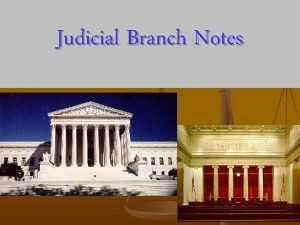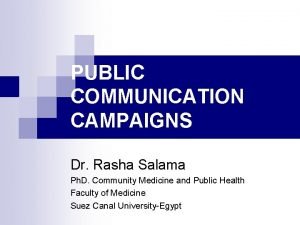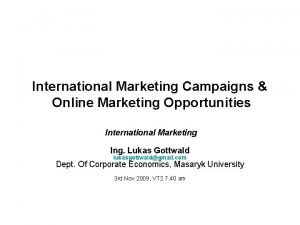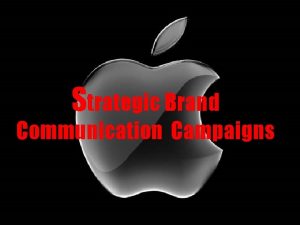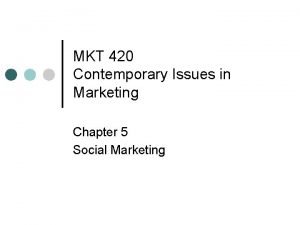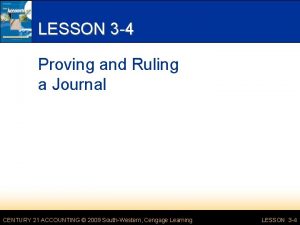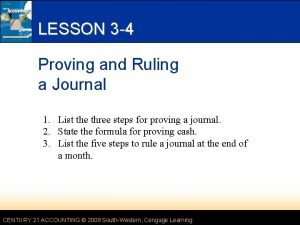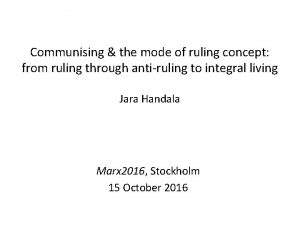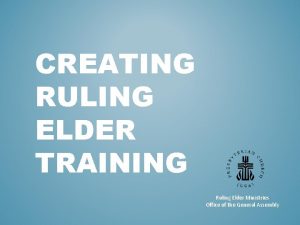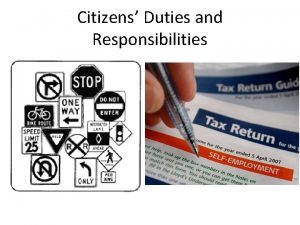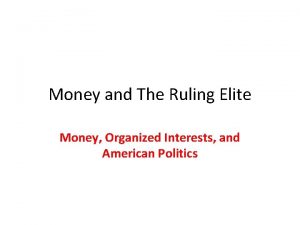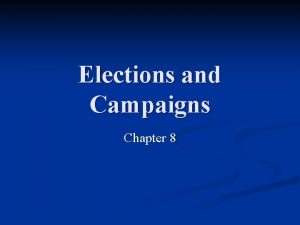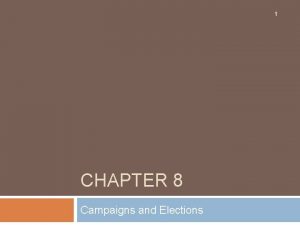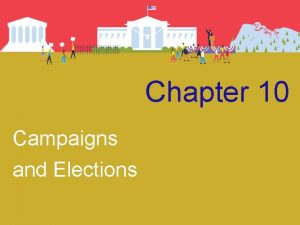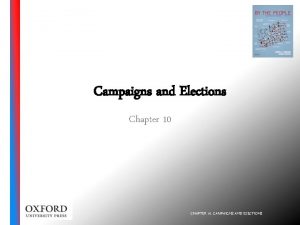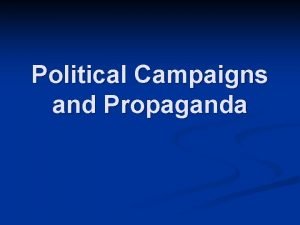Campaigns Money and the Citizens United Ruling Money











- Slides: 11

Campaigns, Money, and the Citizens United Ruling

“Money is the mother’s milk of politics. ” (Former House Speaker Thomas “Tip” O’Neill) Hard money: Direct contributions to candidates’ own official campaign funds (limited by law). Soft money: Contributions to parties (limited by law). Individual expenditures: Money spent by individuals, organizations, or corporations to influence elections, without the involvement of official campaign organizations (not limited by law). Dark money: Money raised and spent by unofficial “super. PACs” where the actual origin of the money is unknown (not limited by law).

Federal Election Campaign Act (1974) --Created the Federal Election Commission (FEC) to administer campaign finance laws for federal elections. ---Required full disclosure. --Limited Contributions. (Originally $1, 000 per candidate per election, now up to $2, 800. ) --Originally limited candidates’ own spending (ruled unconstitutional in 1976). Mc. Cain-Feingold Act of 2002: --brought contributions to national party committees under federal limits (ending the “soft money” factor). --limited propaganda by corporations and unions to influence elections (ruled unconstitutional in 2010).

Under present law, an individual may donate: --$2, 800 per candidate per federal election. --$5, 000 to a PAC* per year. --$35, 500 to a national party committee in one year. *a PAC that contributes to official campaigns; contributions to super. PACs (independent expenditure only) are unlimited. There can no be longer a limit on the grand total of donations (Mc. Cutcheon v. FEC, Supreme Court, 2014).

As things stand now, according to the Court: Congress can restrict --contributions per election by an individual to a candidate’s formal campaign, to a PAC that donates to formal campaigns, and to an official party committee. Congress cannot restrict --candidates’ spending of their own money on their own campaigns (unless they accept federal funding). --independent advertisements by individuals or corporations designed to influence an election. --contributions to entities other than official campaigns and parties (including super. PACs), and independent spending by those entities. --total donations by an individual over a period of time.

Implicit assumptions in current case law on campaign finance: 1. A corporation has the legal status of a person with respect to the right to express itself on political matters. 2. There is a compelling governmental interest in preventing quid pro quo bribery and direct influence of a candidate by a donor, but not in reducing the general ability of wealth to influence election outcomes. 3. Only those laws which limit campaign contributions to prevent quid pro quo bribery and direct influence can stand; most other such laws violate free speech, even if they allow disproportional influence to the wealthy. Controversial Supreme Court ruling Citizens United v. Federal Election Commission (2010) struck down restrictions on corporate spending on political propaganda. (At issue was an anti-Hillary Clinton film produced by a conservative not-for-profit corporation. )

Citizens United v. Federal Election Commission (2010) Majority opinion by Justice Anthony Kennedy “Section 441 b’s prohibition on corporate independent expenditures is thus a ban on speech. As a ‘restriction on the amount of money a person or group can spend on political communication during a campaign, ’ that statute ‘necessarily reduces the quantity of expression by restricting the number of issues discussed, the depth of their exploration, and the size of the audience reached. ’ (Buckley v. Valeo , 424 U. S. 1, 1976, per curiam). Were the Court to uphold these restrictions, the Government could repress speech by silencing certain voices at any of the various points in the speech process.

“Speech is an essential mechanism of democracy, for it is the means to hold officials accountable to the people. ‘In a republic where the people are sovereign, the ability of the citizenry to make informed choices among candidates for office is essential. ’ The right of citizens to inquire, to hear, to speak, and to use information to reach consensus is a precondition to enlightened self-government and a necessary means to protect it. The First Amendment ‘has its fullest and most urgent application to speech uttered during a campaign for political office. ’ … ‘Discussion of public issues and debate on the qualifications of candidates are integral to the operation of the system of government established by our Constitution. ’

“The Court has recognized that First Amendment protection extends to corporations…. [Cites numerous precedents. ] This protection has been extended by explicit holdings to the context of political speech…. Political speech does not lose First Amendment protection simply because its source is a corporation. ‘The identity of the speaker is not decisive in determining whether speech is protected. Corporations and other associations, like individuals, contribute to the discussion, debate, and the dissemination of information and ideas that the First Amendment seeks to foster. ’ ”

Dissent by Justice Sonia Sotomayor “The fact that corporations are different from human beings might seem to need no elaboration, except that the majority opinion almost completely elides it. Unlike natural persons, corporations have ‘limited liability’ for their owners and managers, ‘perpetual life, ’ separation of ownership and control, ‘and favorable treatment of the accumulation and distribution of assets … that enhance their ability to attract capital and to deploy their resources in ways that maximize the return on their shareholders’ investments. ’

“Unlike voters in U. S. elections, corporations may be foreign controlled. Unlike other interest groups, business corporations have been ‘effectively delegated responsibility for ensuring society’s economic welfare’; they inescapably structure the life of every citizen. ‘The resources in the treasury of a business corporation, ’ furthermore, ‘are not an indication of popular support for the corporation’s political ideas. ’ ‘They reflect instead the economically motivated decisions of investors and customers. The availability of these resources may make a corporation a formidable political presence, even though the power of the corporation may be no reflection of the power of its ideas. ’ ”
 Schenck vs united states ruling
Schenck vs united states ruling Dana damian
Dana damian Behavior change campaign
Behavior change campaign Interactive model of communication campaigns four phases
Interactive model of communication campaigns four phases International marketing campaigns
International marketing campaigns Informed delivery campaigns
Informed delivery campaigns Informed delivery multiple residents
Informed delivery multiple residents Strategic brand communication
Strategic brand communication Contemporary issues in marketing
Contemporary issues in marketing Fast food campaigns
Fast food campaigns Proving and ruling a journal
Proving and ruling a journal Proving and ruling a journal
Proving and ruling a journal
